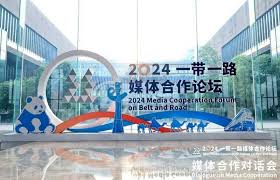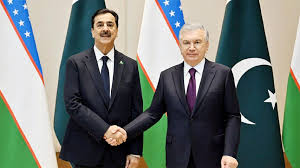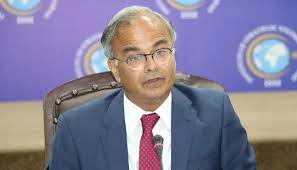Global media unite to promote BRI at Chengdu forum

Chengdu: Media organizations from over 75 countries and regions involved in the Belt and Road Initiative (BRI) have pledged to work collaboratively to further the spirit of the ancient Silk Road, strengthen international ties, and contribute to the high-quality development of the mega project.
This consensus was reached during the 2024 Media Cooperation Forum on Belt and Road, which commenced on Wednesday in Chengdu, the capital of China’s Sichuan Province.
The forum, jointly organized by China’s leading media outlet, People’s Daily, and the Government of Sichuan Province, brought together representatives from more than 200 media outlets. Under the theme “Enhance Media Cooperation for Common Development,” the two-day event emphasized the crucial role of media in building consensus and pooling collective strengths to promote the high-standard cooperation envisaged under the BRI.
A significant outcome of the forum was the adoption of the “Belt and Road Media Cooperation: Chengdu Initiative,” which underscores the media community’s commitment to fostering mutually beneficial engagement among BRI participants.
The Chengdu Initiative highlights the successes of the BRI since its inception, noting that participating countries have prioritized connectivity, leading to enhance policy coordination, infrastructure development, seamless trade, financial integration, and stronger people-to-people ties. These efforts have bolstered global connectivity, created platforms for international economic cooperation, and stimulated global economic growth.
As the BRI enters a new phase, it stresses the continued importance of media collaboration in promoting cultural exchange and mutual understanding. The document calls on media outlets to embrace the principles of joint consultation, construction, and shared benefits, and to disseminate fair, objective, and truthful information. It also warns against bias, fake news, and misinformation, advocating for deeper connections among all parties involved.
Participants in the forum agreed that the collective power of the media should be harnessed to effectively narrate stories of the BRI’s contributions to common development, regional cooperation, and global governance. The forum also highlighted the BRI’s role in enhancing people-to-people exchanges and facilitating mutual learning among civilizations.
Since its launch in 2013 by Chinese President Xi Jinping, the BRI has made significant progress in global infrastructure development, reviving historic Silk Road routes, and supporting numerous projects across participating countries. Notably, the Gwadar Port in Pakistan, a key component of the China-Pakistan Economic Corridor (CPEC), stands as a testament to the BRI’s robust development and progress.
The forum featured parallel sessions on regional cooperation, media dialogue, and cultural development within the Belt and Road framework. An exhibition showcased the BRI’s achievements, and media delegates are scheduled to visit various BRI projects in Sichuan to gain first-hand insights into their progress and impact.
The BRI is projected to significantly boost global trade and economic growth. The World Bank estimates a 4.1% increase in trade among participating countries, a reduction in global trade costs by up to 2.2%, and an overall GDP growth of 2.6% to 3.9% for developing countries in East Asia and the Pacific. Additionally, the Centre for Economics and Business Research forecasts that the BRI could contribute $7.1 trillion annually to global GDP by 2040, encouraging more countries to join this transformative infrastructure initiative.





